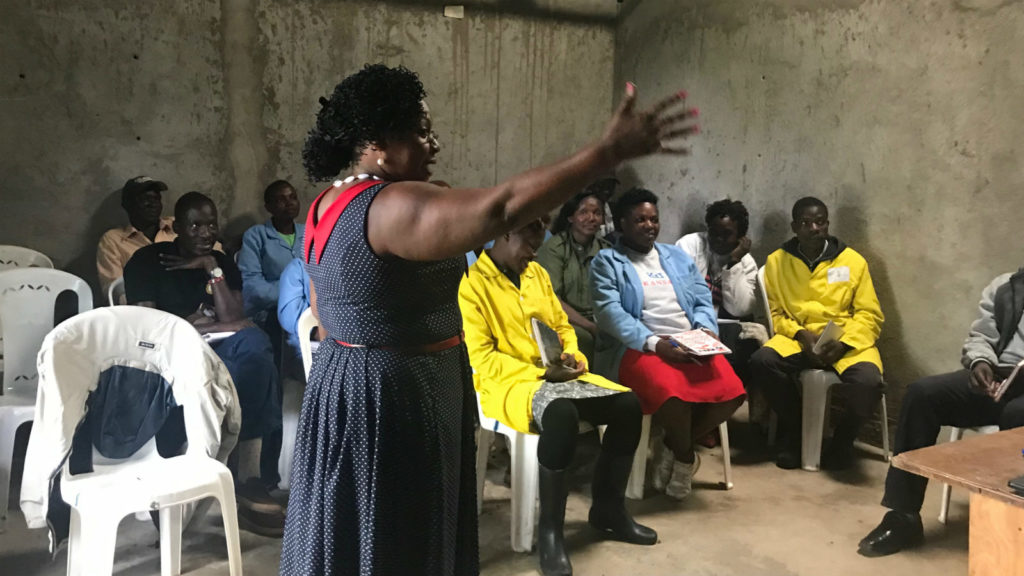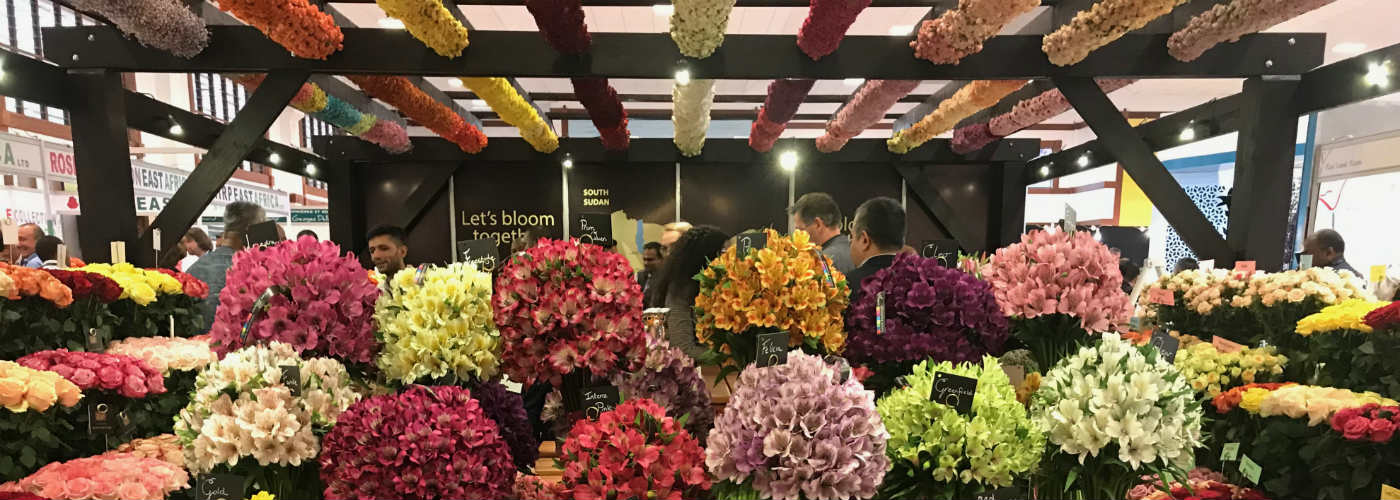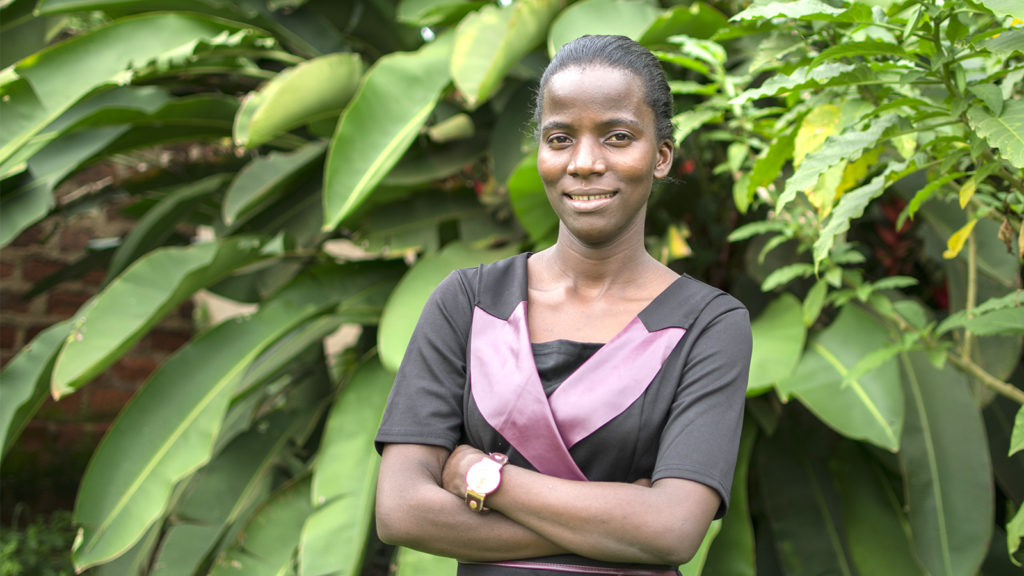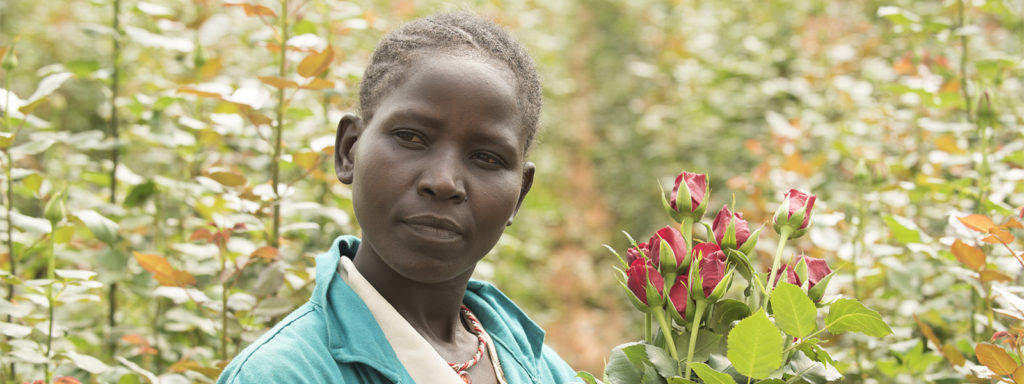A sea of roses, great Indian food and a dedicated team all set to improve working conditions in the flower industry. That pretty much sums up our experience at the Kenyan Floriculture Trade Fair (IFTEX), which took place from June 5 to 7 in the Oshwal Center in Nairobi.
Every year, flower growers, buyers and other stakeholders from all across East Africa, and abroad, gather at IFTEX to do business. Now, after weeks of preparation and many Skype calls, I, too, was going to be there! I met up with Andrea and Floor of the Dutch social enterprise Impact Institute at Schiphol Airport to fly to Nairobi and join our Women@Work Campaign colleagues from Hivos East Africa and the Kenyan NGO Ufadhili Trust. Our mission? To promote the CSR Africa portal amongst the nearly 200 exhibitors at the fair.
CSR Africa
Hivos, Ufadhili Trust and the Impact Institute launched CSR Africa (download brochure) in 2018 as a portal where horticultural businesses can learn about, measure and improve their corporate social responsibility (CSR) performance. This year, we introduced the “quick scan”. Now, just by filling in an online form, companies can get an initial diagnosis of their social performance and identify priority areas concerning gender, health and safety, freedom of association, wages and water usage.
Quantifying social impact helps you see the extent of the problem.
Innovative about the portal is that it monetizes social impact. I asked Andrea Rusman from the Impact Institute to explain why. “Quantifying social impact helps you see the extent of the problem and start monitoring improvement,” she said. “By quantifying and putting a value on social impact, CSR Africa shows growers exactly which social issues are most urgent and need to be addressed first.”
Ufadhili Trust, a Kenyan NGO that has been working on social responsibility since 2002, approaches flower farms directly. “We promote the use of the portal throughout East Africa and we conduct the full version of the scans,” says the Executive Director Steven Irungu. A full impact scan is done by visiting a farm and collecting data from surveys completed by workers and management. Based on this information, the farm will receive a report with the main areas of concern and recommendations for improvement. Ufadhili Trust and Hivos can help them bridge these gaps through, for example, capacity building or linking their farm to qualified experts.
Capacity building at the flower farm
I saw an example of this capacity building when I visited a flower farm about an hour outside Nairobi. Eunice Muthoni Waweru, Executive Director of Workers Rights Watch, was giving in-service training for managers about sexual harassment. The twenty-some participants listened intently as Eunice explained what sexual harassment is (“If it is unwanted, it is sexual harassment”) and what can be done against it. Her examples were greeted with a lot of laughter, but also had a serious message that gave everybody food for thought.

This kind of training is important to combat sexual harassment and thereby improve working conditions for women in the flower sector. And the CSR Africa scan can help companies determine if sexual harassment is an issue at their farm and give them advice on how to improve.
If we continue to work together we can make the floriculture sector a great place to work.
The future of CSR Africa
Expectations for CSR Africa are high. “We hope that the portal will be visited by all producers at all stages of working on social impact,” Andrea told me. And not only in East Africa. “Although CSR Africa currently focuses on floriculture in East Africa, we see potential for this application in agri-food value chains across the world. We’re eager to start spreading our experiences from Kenya so they can be applied in new contexts.”
I am also very hopeful. Whereas in the past the focus was mainly on environmental aspects when it comes to sustainability in floriculture, now there is more and more interest in the social aspect as well. Some of the growers we spoke to during the fair were very enthusiastic about the social impact scan. If we continue to work together, businesses and civil society, we can make the floriculture sector a great place to work.





